90 and Counting: 92-year-old Fred Campling’s farming life
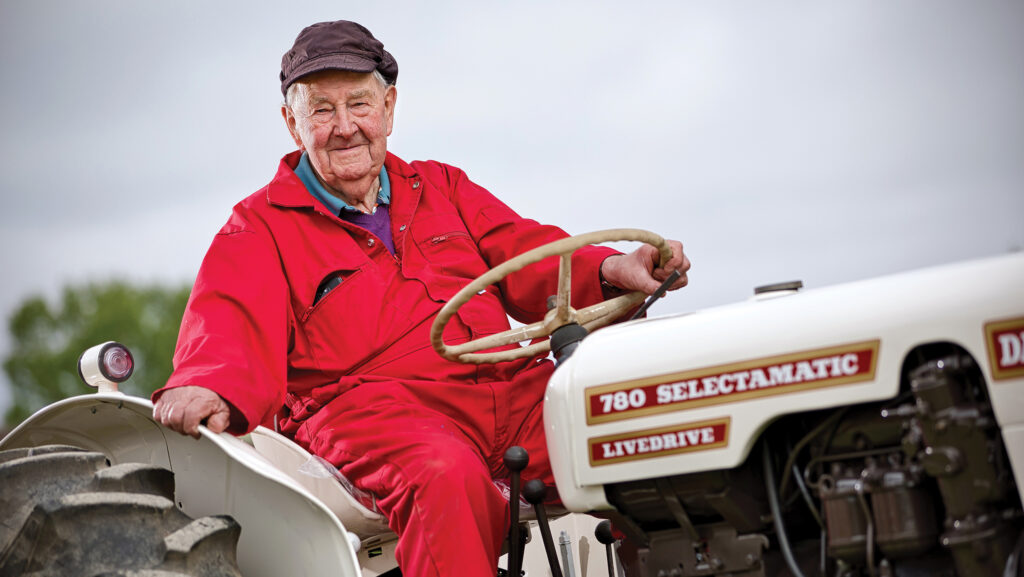 © Richard Stanton
© Richard Stanton In the first of our series, “90 and Counting”, celebrating the enduring nature of farming generations through the decades since FW’s first issue, we talk to 92-year-old Fred Campling.
Watch the video and read the report below:
See also: Photo of the Week: When a combine cost just over £2,000
Early life
Everything starts from the land, and everybody gets a living from the land. It is a good life, farming, if you enjoy it. I don’t enjoy anything else, I just enjoy farming.
I left school at 14 and started working for my father. I lifted sugar beet with horses and I was paid £1 a week. My first bicycle cost me £7 – I had to work seven weeks to pay for that!
My father worked for his father, and when he died, my father took over the farm. He died at 48, so I started farming on my own when I was 20.
I’ve lifted sugar beet ever since. I go from here, to Kings Lynn, then up to Sedgeford. I lift for four farmers up there – I’ve been lifting for them for 40 years.
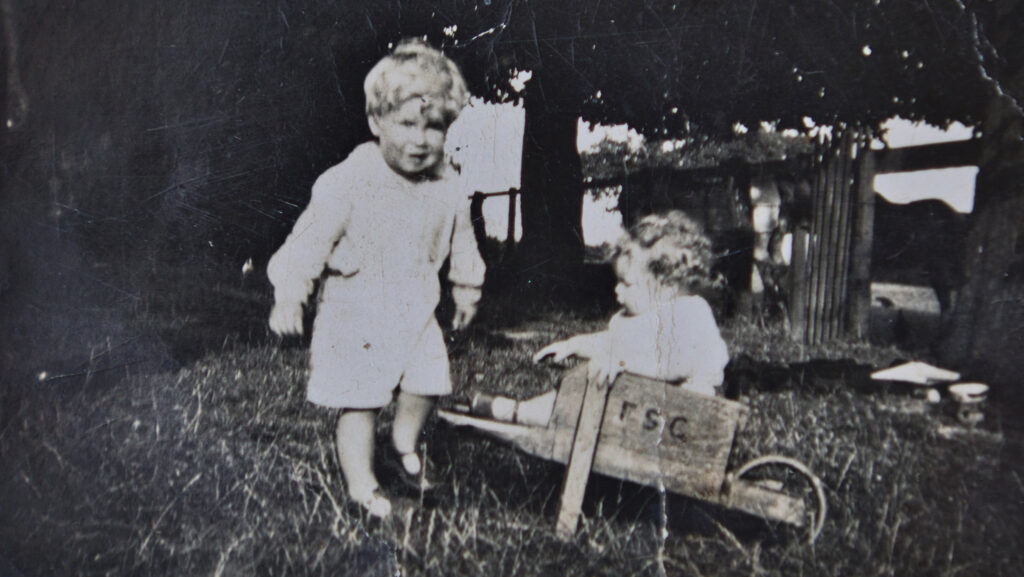
Fred with his sister Ruth – Fred is aged approx 2yrs © Richard Stanton
On prices
There’s been big changes in prices, but I’m afraid there’s not been too big a change in the contract prices.
We had a hard year one year – we couldn’t get the crops in, it was very wet and then very dry and they couldn’t grow. It’s been hard, but we’ve made a living.
For young people going into farming, I don’t know how they can afford to start. We started with nothing, but things weren’t very dear when we first started.
We bought our first bungalow for £2,500, but now you’d get one for £250,000.
Machinery has got so expensive – that’s the biggest problem. Repairs have also gone through the roof. A little farmer just can’t afford the machinery these days.
I’ve got a Case 956 and that’s one of the best tractors I’ve ever bought. It’s never given us any trouble and it’s still a good tractor. The old three-cylinder David Brown, now that’s been a very good tractor.
I’ve been David Brown all my life, I don’t know any different. I’ve had one of every make – more than 50 of them, all reconditioned and done up properly.
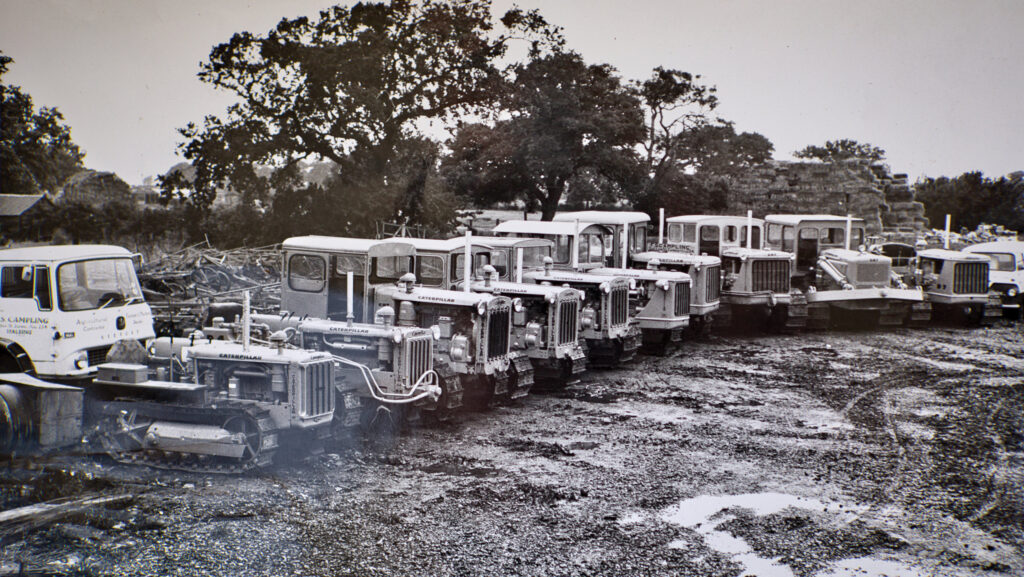
Fred’s Caterpillar line up – his contracting fleet © Richard Stanton
On public perception
I don’t think the general public understand farmers – what they have to go through and what they get paid for it. The supermarkets take too much out of it and farmers are not getting paid enough for what they do.
All the rain we’ve had, this year I think it’ll be a very poor harvest. I’ve had some fields flooded and I know they won’t have anything on them. I don’t think the general public realise the effect it will have on them – things will be dearer.
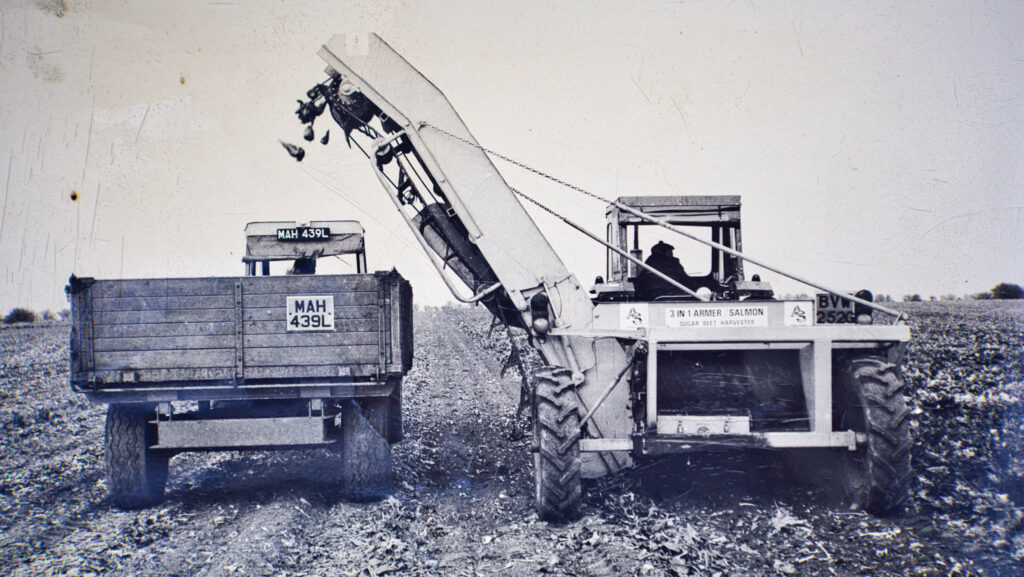
Lifting sugar beet, circ. 1973 © Richard Stanton
On farming families
My wife has been a big help to me throughout my life. She was originally a schoolteacher, then she buckled down and helped me. We had three children and she looked after them.
There’s not a lot of money made out of it, but we still keep farming.
I’ve had a good life. I’ve been all over the country and a lot of the world. I’ve now got 12 great-grandchildren, and six grandchildren.
I’m still going strong and working every day. While I can do it, I’m still going to do it. They keep telling me to pack up, but I shan’t. When I pack up, they’ll dig the hole for me.
1930s fact file
Fred Campling was born in the 1930s. These are some of the farming issues at that time.
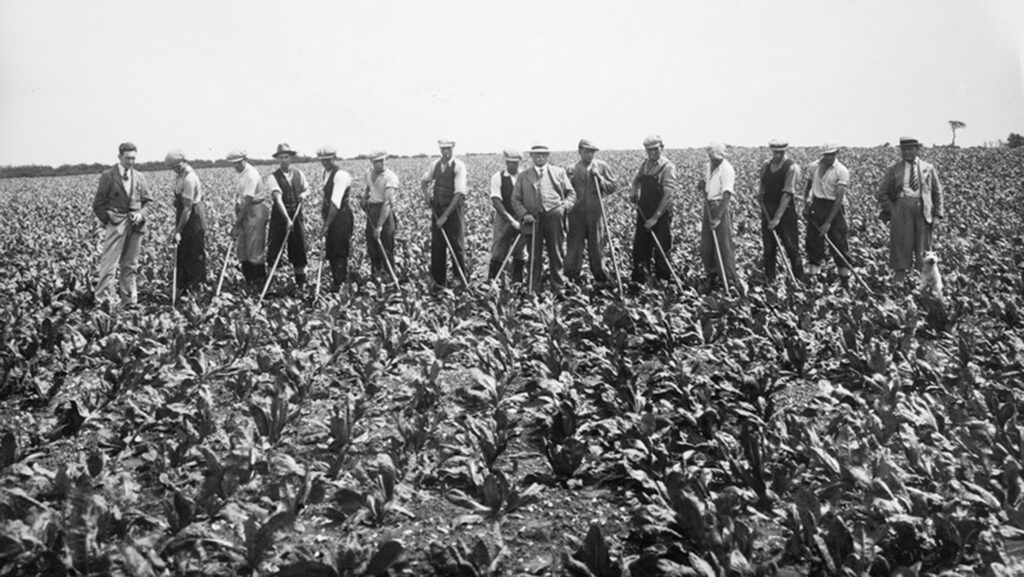
Hoeing a chicory crop on the farm of Mr E C Thompson, Hockwold, Norfolk © Merl
- 1934 Cereal prices reach their lowest point during the Great Depression, with wheat averaging 4s 10d/cwt (4.76/t)
- 1935 It was possible to buy a 172-acre mixed farm in Hertfordshire with a house and two cottages for £3,500
- 1936 Tractors were becoming a familiar sight on farms, but more than 700,000 horses were still used in British agriculture – three horses per 100 acres (40ha)
- 1939 The outbreak of the Second World War saw a new push to increase food production, and the agricultural industry was brought under government control
Sources: Farmers Weekly, ONS, Hansard/Parliament.uk

